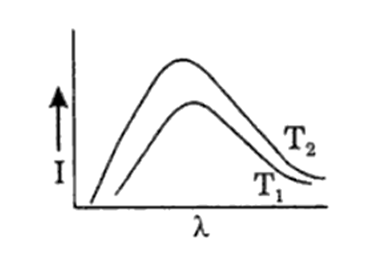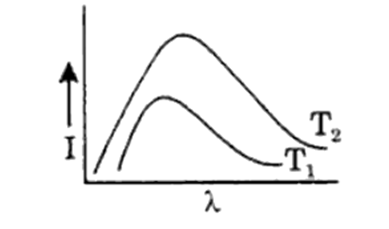 Multiple Choice Questions
Multiple Choice QuestionsAssertion: In a pressure cooker the water is brought to boil. The cooker is then removed from the stove. Now on removing the lid of the pressure cooker, the water starts boiling again.
Reason: The impurities in water bring down its boiling point.
If both assertion and reason are true and reason is the correct explanation of assertion
If both assertion and reason are true but reason is not the correct explanation of assertion
If assertion is true but reason is false
If both assertion and reason are false
Assertion: The melting point of ice decreases with increase of pressure.
Reason: Ice contracts on melting
If both assertion and reason are true and reason is the correct explanation of assertion
If both assertion and reason are true but reason is not the correct explanation of assertion
If assertion is true but reason is false
If both assertion and reason are false
A black body, at a temperature of 227°C, radiates heat at a rate of 20 cal m-2 s-1. When its temperature is raised to 727°C, the heat radiated by it in cal m-2 s-1 will be closest to
40
160
320
640
Shown below are the black body radiation curves at temperatures T1 and T2 ( T2 > T1 ). Which of the following plots is correct?




Assertion: Temperatures near the sea coast me moderate.
Reason: Water has a high thermal conductivity.
If both assertion and reason are true and the reason is the correct explanation of the assertion
If both assertion and reason are true and the reason is not the correct explanation of the assertion
If assertion is true but reason is false
If both assertion and reason are false statements
Assertion: It is hotter over the top of a fire than at the same distance on the sides
Reason: Air surrounding the fire conducts more heat upwards.
if both assertion and reason are true and the reason is the correct explanation of the assertion
if both assertion and reason are true and the reason is not the correct explanation of the assertion
if assertion is true but reason is false
if both assertion and reason are false statements
C.
if assertion is true but reason is false
When we put a fire in a place, the air above the fire gets heated up. Hot air being light moves up. To fill up the gap cold air from the side of the fire rushes in. As the top of a fire is covered by hot air, it feels hotter over the top of the fire than at the same distance on the sides.
According to Wein's displacement law
λT = constant
λ/T = constant
λ ∝ ( 1/ T2 )
both (b) and (c)
A black body is at a temperature 300 K. It emits energy at a rate, which is proportional to
300
(300)3
(300)2
(300)4
Assertion: Blue star is at high temperature than red star.
Reason: Wein's displacement law states that T ∝ ( 1/λm ).
If both the assertion and reason are true and reason is a correct explanation of the assertion.
If both assertion and reason are but assertion is not a correct explanation of the assertion.
If the assertion is true but the reason is false.
If both assertion and reason are false.
Assertion: The earth without its atmosphere would be inhospitably cold.
Reason: All heat would escape in the absence of atmosphere.
If both the assertion and reason are true and reason is a correct explanation of the assertion.
If both assertion and reason are true but assertion is not a correct explanation of the assertion.
If the assertion is true but the reason is false.
If both assertion and reason are false.
